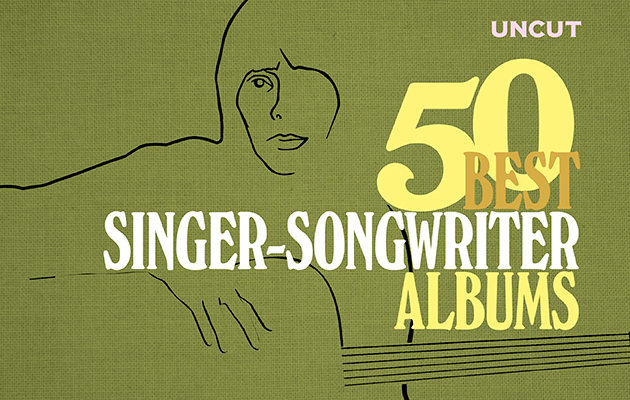16 Neil Young
On The Beach
(Reprise, 1974)
https://www.youtube.com/watch?v=xWLT-7yUrtM
Recorded after Tonight’s The Night but released first, this exercise in downbeat self-analysis finds Young wrestling with bittersweet nostalgia, paranoia and depression in the shadow of the Californian sun. While addressing his relationship with the actress Carrie Snodgress (“Motion Pictures”) and alluding to his song-spat with Lynyrd Skynyrd (“Walk On”), he returns again and again to circle the pitfalls of fame. The bleached title track finds him stranded by his predicament (“I need a crowd of people/But I can’t face them day to day”) while the epic “Ambulance Blues” recalls his “old folky days” in Toronto before venting, “All you critics sit alone/You’re no better than me for what you’ve shown.”
____________________________
17 Bob Dylan
Blood On The Tracks
(Columbia, 1975)
Dylan has often refuted this album’s status as a grand confessional but even his son Jakob admits that “the songs are my parents talking”. The bulk of the tracks form a heartfelt, if opaque, narrative examining his failing marriage to Sara Lowndes from shifting perspectives. “Shelter From The Storm” rewinds to Dylan’s chaotic mid-’60s and his saviour through love, while “Tangled Up In Blue” is an impressionistic précis of the ensuing decade. The rest is all fall-out. The relentless “Idiot Wind” captures the full emotional range experienced when love turns sour, while “You’re A Big Girl Now” and “If You See Her, Say Hello” linger over the whys, whos and wheres.
____________________________
18 Joan Baez
Diamonds & Rust
(A&M, 1975)
“Yes, I loved you dearly.” Ten years after the demise of their highly public affair, Baez’s best album is haunted by the ghost of her former lover, Bob Dylan. The bittersweet title track – written after Dylan had recited the just-written “Lily, Rosemary & The Jack Of Hearts” down the phone to her – is awash with painful nostalgia, recalling how he “burst on the scene already a legend/The unwashed phenomenon, the original vagabond”. “Winds Of The Old Days” focuses on the “the blue-eyed son” whose “eloquent songs from the good old days…set us a marching… the ’60s are over so set him free.” A cover of “Simple Twist Of Fate” suggests Baez is struggling to heed her own advice.
____________________________
19 Janis Ian
Between The Lines
(Columbia, 1975)
Janis Ian’s seventh album was a US chart-topper, selling a million copies on the back of its lead single, “At Seventeen”, a timeless and poetic delineation of adolescent angst. However, Ian had already had a big hit single aged 16 (1967’s “Society’s Child”) and been written off as a one-hit wonder, something that plunged her into years of depression. After therapy and premature retirement, Between The Lines saw her move from the political to the personal, with 11 ballads articulating her own personal turmoil. There are meditations on manipulative lovers (“Water Colors”), loveless sex (“The Come On”), and diatribes against a fickle music biz (“Bright Lights And Promises”). Even the jazzy guitars, lavish strings and elegant musicianship of LA’s finest sessionmen can’t sweeten the pill.
____________________________
20 Paul Simon
Still Crazy After All These Years
(Columbia, 1975)
https://www.youtube.com/watch?v=Lv7fA1gBKPo
In the throes of divorcing first wife Peggy Harper, Simon made what he later described as “a whole album about my marriage”. Perhaps the closest he ever came to an intimate singer-songwriter record, its top line traces the contours of a minor mid-life crisis. The McCartney-esque “I Do It For Your Love”, filled with the authentic minutiae of real life, recalls the details of a couple “married on a rainy day” who drift apart. The unsparing truth of “50 Ways To Leave Your Lover” lies in the verses rather than jaunty chorus, while the title track is a portrait of existential ennui.



